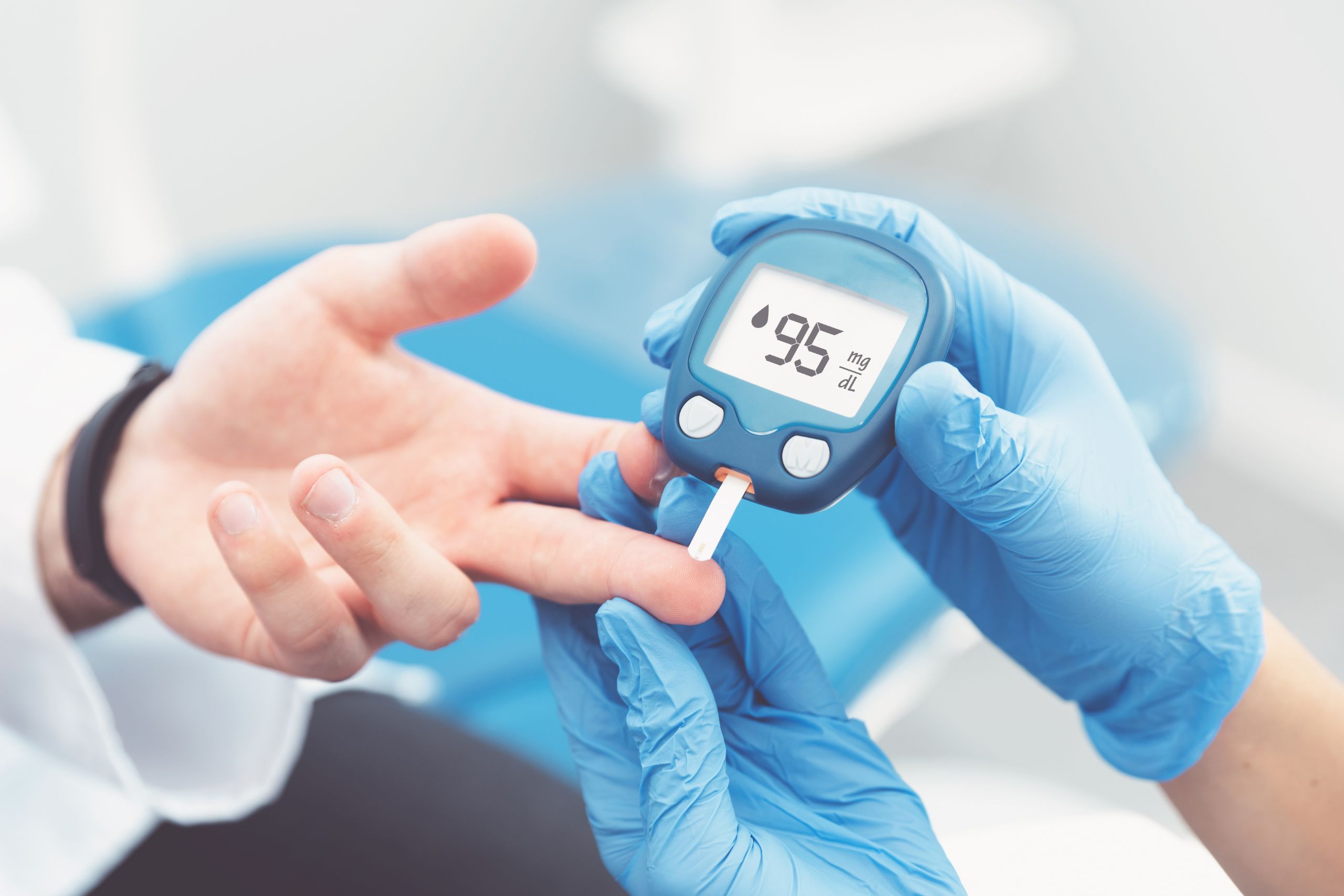Our health is one of the most important parts of our lives, and it’s essential to be mindful of what we consume. Unfortunately, many people don’t realize how their drinks can impact their health – both positively and negatively. From alcohol to soft drinks and fruit juices, it’s important to take caution when deciding which types of beverages to drink. In this article, we’ll explore the effects of different drinks on our overall health, as well as discuss ways to maintain healthy habits and seek professional advice if needed. So grab a glass of water and let’s jump in!
Health Care Provider
It is important to have a primary health care provider who can be consulted with any medical concerns. A health care provider can help to diagnose and treat illnesses, as well as provide routine check-ups and screenings to ensure that you stay healthy. They can also provide referrals to specialists if needed and can monitor your progress over time. Additionally, they should be able to answer any questions about medications, lifestyle changes, dieting, physical activities, and other related topics. When selecting a healthcare provider, it’s important to research their qualifications and experience so you’re comfortable with the person that’s caring for your health. This is especially true if you have a chronic condition or one that requires frequent monitoring by a doctor or other health professional.
Your health is an important part of your life and it’s essential to have a trusted healthcare provider who can provide you with quality medical care. Taking the time to find the right provider for you will ensure that you get the best possible care for your mind and body. With the right guidance, you can take control of your health and live a long, healthy life. Now, let’s explore the effects of alcohol on your health and how it can impact your well-being.
Effects of Alcohol on Health
Alcohol has a range of short and long-term effects on the body, depending on how much is consumed. In small amounts, alcohol can make individuals feel relaxed and can increase sociability. However, if too much is consumed, several potential health risks can arise. This includes an increased risk of developing certain types of cancer as well as liver disease, heart disease, stroke, high blood pressure, and depression. Alcohol consumption can also raise cholesterol levels, impair judgment, slow reaction time, and increase the risk of injury from falls or accidents.
For those with existing medical conditions such as diabetes or hypertension, even moderate drinking can be dangerous to their health. Those with chronic conditions need to consult with their healthcare team before consuming any alcoholic beverages. Even for healthy adults without any medical conditions, it’s recommended to limit alcohol intake to one drink per day for women and two drinks per day for men. When it comes to staying hydrated throughout the day it’s best to reach for plenty of water instead of soft drinks or fruit juice—or any other type of alcoholic beverage—to keep your blood sugar levels in the target range and avoid health risks associated with excessive drinking.
Physical Activities To Maintain Health
Physical activity is an important part of overall health and wellness. Regular physical activity can reduce stress, improve mood, increase energy levels, control weight, strengthen muscles and bones, and even help to ward off chronic diseases. It is recommended that adults participate in at least 150 minutes of moderate-intensity physical activities per week. This can include walking, running, biking, or swimming.
For those who are new to exercise or may be intimidated by the idea of going to the gym, it’s important to consider your own needs and preferences when starting a physical activity program. For instance, if you enjoy being outdoors and socializing with others, you might consider joining a walking group or playing a game of tennis with friends. On the other hand, if you prefer solitary activities such as yoga or Pilates classes provide a more calming environment for individuals who may not feel comfortable exercising in a group setting.
It’s also important to make sure that your exercise routine is tailored to your fitness level. Start slowly and gradually increase the length of time spent on each activity as your body gets used to the extra strain placed on it during physical exertion. Finally, be sure to consult with your healthcare provider before beginning any new exercise regimen to ensure that all safety protocols are followed and that there are no underlying medical conditions that could be exacerbated by increased physical activities.
Seeking Professional Advice
When it comes to making decisions about your health, it is important to seek professional advice whenever possible. Consulting with a healthcare provider or a healthcare team can help you make informed decisions about your health. Your healthcare provider can provide expert advice and guidance on the best choices for your unique health condition. In addition, consulting with other health professionals such as pharmacists, dietitians, and physical therapists may also help you understand how different lifestyle changes may impact your overall well-being.
It is also important to discuss any over-the-counter medications or supplements that you are taking with your healthcare provider before beginning treatment plans. Even if an item seems harmless, there can be potential interactions with other medications that could cause serious adverse effects. Additionally, talking to a doctor about any chronic conditions such as diabetes or heart disease can ensure that the target range for blood sugars or cholesterol levels is in line with healthy adult values and that any necessary lifestyle changes are implemented correctly.
Finally, consulting with local public health departments or national institutes of health (NIH) websites can help you stay informed on current research related to particular health risks or concerns. By seeking out professional advice from all of these sources, you can be better equipped to make the most informed decisions when it comes to maintaining optimal physical and mental well-being.

Types of Drinks to Avoid or Reduce Intake
It is important to pay attention to the types of drinks you are consuming daily. While many people rely on their favorite beverages for energy and hydration, certain drinks can be detrimental to your health. Alcoholic beverages contain high levels of sugar and can quickly increase blood sugar levels beyond healthy ranges. In addition, long-term consumption of alcohol can lead to liver damage, increased risk for certain medical conditions, and slowed reaction times. Similarly, sugary soft drinks should be consumed in moderation due to their high-calorie content and potential for weight gain.
Fruit juices may seem like a healthier alternative but they also contain large amounts of sugar which can contribute to higher blood glucose levels as well. Drinking plenty of water instead is always a better choice as it helps keep you hydrated and has no calories or added sugars. Finally, it is essential to read labels carefully when consuming any over-the-counter medicines or supplements as some products may contain caffeine or other stimulants that could interfere with your overall health goals. By being mindful about what you drink, you can make sure that your body remains healthy and functioning optimally.
Drinking responsibly is the key to maintaining your health, so make sure to pay attention to what you’re consuming and always read labels carefully. With that in mind, let’s explore how alcoholic drinks can affect your health – and why moderation is key.
Alcoholic Drinks
Alcoholic drinks are a popular beverage choice for many people, especially in social settings. While occasional consumption can be enjoyable and even beneficial to health in moderation, regular or excessive intake of alcohol can have serious long-term effects on your physical and mental health. In particular, drinking too much alcohol over a long period can lead to liver damage and an increased risk for certain medical conditions such as stroke, heart disease, and high blood pressure. Additionally, alcohol is a depressant that slows down your reaction times and inhibits judgment; this could lead to an increased risk of injury or accidents if you choose to drive after drinking. To be safe it is important to remember that the best way to enjoy alcoholic beverages is in moderation; try alternating each alcoholic drink with water or a non-alcoholic beverage like juice or soda. Doing so will help you remain mindful of how much you are consuming while still allowing you to enjoy yourself responsibly.
Soft Drinks and Fruit Juices
Soft drinks and fruit juices are often popular beverage choices for those looking for something refreshing to drink. While these options may be better than alcoholic beverages, they can still contain high amounts of sugar and calories that could lead to health concerns if consumed in excess. People with certain health conditions such as diabetes or obesity should consult their healthcare provider about the best type of beverages to consume. For healthy adults, it is generally recommended that you limit your intake of sugary drinks and opt for water or unsweetened tea and coffee whenever possible.
Drinking plenty of water throughout the day is important not only for hydration but also to help regulate heart rate and blood sugar levels. For those who enjoy sweet beverages, try diluting fruit juice with water or limiting yourself to one can/bottle of soft drink per day as an alternative to drinking multiple cans/bottles each time. Additionally, certain medications like antihistamines or counter medicines can increase your sensitivity to caffeine so it’s best to check with your healthcare team before consuming any caffeinated beverage if you take medication regularly.
No matter what type of beverage you prefer, it’s important to remember that moderation is key when it comes to staying within a healthy target range for physical activities, blood sugar levels, cholesterol levels, and other aspects of overall health. If you have any questions about how much or what types of drinks are safe for your specific health condition, contact your local health department or national institutes of health for more information.
Monitoring Your Health Through Regular Tests
Regular health tests are an important part of maintaining your overall well-being. These tests can detect potential medical issues early on, allowing for more targeted treatment plans and better long-term outcomes. Health professionals recommend that adults engage in regular testing such as blood pressure checks, cholesterol checks, and blood sugar screenings to monitor their current health status. Additionally, screenings such as mammograms, colorectal cancer exams, and Pap smears can detect signs of cancer and other potentially serious conditions before they become severe or life-threatening.
It’s also important to have a thorough physical exam with your healthcare provider at least once a year to assess any changes in your physical condition such as weight gain/loss or changes in energy levels. Additionally, if you have any pre-existing medical conditions it is important to stay current with your specific treatments and follow-up visits with your doctor for further monitoring.
These types of tests can help identify potential risks and allow you to take proactive steps toward living a healthier lifestyle. Talk to your healthcare provider about the best type of tests for your age, gender, and risk factors so you can stay ahead of any possible health issues.
By engaging in regular health tests, you can stay ahead of any potential medical issues and be proactive about your well-being. Taking the time to invest in your health now can help you enjoy a healthier future. And don’t forget: monitoring your heart rate and blood sugar levels is also essential for maintaining your overall health; learn more about what to look out for next!
Heart Rate and Blood Sugar Levels Monitoring Cholesterol Levels, Heart Disease, and Treatment Plans
It is important to understand the effects of your lifestyle on your heart rate and blood sugar levels, as well as cholesterol levels, heart disease, and other health conditions. Monitoring these key factors can help you identify potential health issues before they become severe or life-threatening.
Your healthcare provider can help you determine what type of tests are best for you based on age, gender, and risk factors. A routine physical examination will also measure your heart rate and blood sugar levels. If the results indicate that either one of these parameters is outside the target range, additional tests may be recommended to assess the cause.
Cholesterol checks are also important in detecting risks for heart disease and stroke. High cholesterol levels can lead to an increased risk for cardiovascular diseases such as atherosclerosis (hardening of the arteries). Your healthcare team may recommend lifestyle changes such as eating healthy foods, exercising regularly, quitting smoking, reducing alcohol consumption, and taking counter medicines if necessary to lower cholesterol levels.
Regular check-ups with a qualified healthcare provider are essential for maintaining our overall well-being; make sure to keep up with scheduled doctor visits to stay ahead of any potential health concerns. The National Institutes of Health has more information available about monitoring cholesterol levels, heart disease, and treatment plans online so you can take proactive steps toward living a healthier life!
Over-the-Counter Medications and Treatments for Adults
Over-the-counter medications and treatments for adults should be taken with caution, as many of these products may interact with other drugs or cause unexpected side effects. It is important to read the product label carefully and consult with a qualified healthcare provider before taking any over-the-counter medication or treatment. The National Institutes of Health provides online information about potential interactions between medications and potential risks associated with different over-the-counter options.
A healthy adult diet plan should include plenty of fresh fruits and vegetables, lean proteins, whole grains, and low-fat dairy products. Regular physical activity is also an important part of a healthy lifestyle; try to get at least 30 minutes of exercise five days a week. If you are unsure about the best diet plan for you, speak to your healthcare team who can provide tailored advice based on your individual needs.
It is important to monitor blood sugar levels, cholesterol levels, and other key factors to assess risk for potential health problems such as cardiovascular disease. Your healthcare team will be able to advise on the target range for each parameter depending on age, gender, and other factors – make sure to keep up with scheduled doctor visits so that any changes in readings can be noted quickly by your healthcare provider.
Other Health Concerns to Consider
Other health concerns to consider include the effects of alcohol, soft drinks, and other drinks on your health. It is important to be mindful of the amount of alcohol you consume as it can affect your heart rate and increase the risk of various medical conditions such as hypertension and stroke. Additionally, sugary drinks are linked to obesity, diabetes, and heart disease, so it is best to avoid these if possible or limit their consumption. Whenever possible, opt for healthier alternatives like herbal teas or fruit juice instead.
It is also important to stay hydrated by drinking plenty of water throughout the day; this helps keep your organs functioning properly and will help maintain energy levels. Those with certain health conditions should speak with their healthcare team about treatment plans that are best for them. If you have any questions or concerns about your health, you should speak with a qualified healthcare professional for advice.
It is essential to be mindful of your health when considering what you drink and how much. To keep your body in the best shape possible, make sure to choose beverages that are beneficial for your overall well-being. But beware – too much of certain drinks can have damaging effects on your health. Keep reading to learn more about the risks associated with drinking too much alcohol or soft drinks!
Health Risks Associated With Drinking Too Much Alcoholic Beverages or Soft Drinks
Consuming too much alcohol or soft drinks can hurt health, leading to an increased risk of serious health issues. Alcoholic beverages contain ethanol, a toxic substance that can cause serious damage to the liver and other organs. Some of the risks associated with drinking too much include cirrhosis of the liver, cancer, cognitive decline, and even death. Excessive consumption of sugar-sweetened soft drinks is also linked to obesity, diabetes, and metabolic syndrome; it has also been linked to an increased risk of stroke and heart attacks.
To reduce your health risks, follow the advice from your healthcare provider and limit the amount of alcohol and sugary drinks you consume. Stick to healthy adult limits for alcohol—no more than one drink per day for women and two drinks per day for men—and try to stay within your target range for blood sugars. If you are taking any counter medicines or have any other health concerns, be sure to consult with a qualified healthcare professional before consuming alcohol or sweetened beverages in excess.
It is important to remember that alcoholic beverages are not necessary for social gatherings; instead, opt for lower-calorie alternatives such as sparkling water with lemon or lime wedges. Drinking plenty of water throughout each day is essential for staying hydrated and will help keep cholesterol levels in check while promoting overall good health.

Conclusion
In conclusion, it is important to remember that drinking too much alcohol or sugary soft drinks can put your health at risk. Consuming alcoholic beverages in excess can increase the risk of cirrhosis of the liver, cancer, cognitive decline, and even death. Drinking large amounts of sugar-sweetened beverages is linked with obesity, diabetes, metabolic syndrome, and an increased risk of stroke and heart attacks. It is essential to stick to healthy adult limits for alcohol and try to stay within target ranges for blood sugars. To reduce your health risks, substitute non-alcoholic beverages such as sparkling water with lemon or lime wedges and drink plenty of water throughout each day. Be sure to consult a qualified healthcare professional if you are taking any counter medicines or have any other health concerns before drinking alcohol or sugary drinks in excess.



